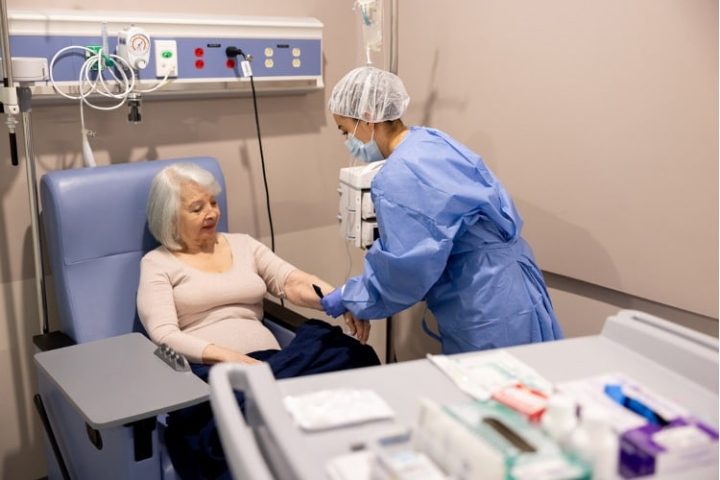
A record-breaking national shortage of drugs used to treat infections, cancer, and a number of other conditions is plaguing our nation’s healthcare system.
A Johns Hopkins University panel convened this month to discuss the growing problem. Dr. Amanda Fader, a professor of gynecology and obstetrics at Johns Hopkins Medicine, called it a public health crisis and one of the worst chemotherapy drug shortages in U.S. history:
What we have now is, unfortunately, over the last three months we’ve seen an unfolding in the number of drugs that are in shortage, and we now can say that we have a shortage of 15 indispensable chemotherapy drugs that are used to treat a wide variety of cancers… The drugs that are in most severe shortage right now — they’re called the platinum drugs, or cisplatin and carboplatin, are the chemotherapy backbone in treatment of most of these cancers, and they’re often curative treatments.
Penicillin and amoxicillin are also running short. They are the go-to drugs for dozens of bacterial infections such as strep throat and common colds. Becker’s Hospital Review reported last week that supplies of the two drugs have been in a nosedive since early this year, and Pfizer expects to run out of penicillin solutions by the third quarter of 2023.
One of the other experts on the Johns Hopkins panel attributed these shortages to supply chain and quality control problems. He cited the U.S. Food and Drug Administration’s inability to properly examine overseas manufacturing facilities, noting that last year, the agency inspected only six percent of foreign plants.
But Mariana Socal, a Johns Hopkins associate scientist, hit closer to the real cause of scarcity when she described the shortage of suppliers worldwide. Speaking of generic drugs — which are the most common on the market — here’s what she revealed:
There are many drugs that — even though we can see in the United States when we monitor, we say, ‘Oh, there are like four or five companies manufacturing these drugs.’ There are actually many drugs that only have one facility in the entire globe that is producing that active ingredient for that drug for the United States.
It’s a problem we at The New American have been warning about for years.
In 2019, we reported what Socal failed to mention: China has a corner on both prescription drugs and their ingredients. At that time we said, “The key components in 90 percent of the prescription and over-the-counter meds that Americans take are sourced from a country that our Department of Defense considers a major adversary.”
It was Rosemary Gibson who exposed that in her 2018 book China RX: Exposing the Risks of America’s Dependence on China for Medicine.
Last year, The New American’s Alex Newman caught up with Gibson, who offered further insights about the effect of China’s control in light of the Covid pandemic:
Gibson: China can simply stop selling us drugs.
Newman: And they threatened to do that during the Covid pandemic.
Gibson: China threatened to withhold antibiotics from the United States in the middle of a pandemic. And we still don’t see a lot of action on Capitol Hill to do anything about that — to bring antibiotic manufacturing back. If that won’t do it, I don’t know what will. So they can withhold them, and so we won’t have medicine, the stuff you need to survive. And then they can contaminate what they send to us, which they did a number of years ago, which killed a bunch of people.
Gibson is referring to the contaminated heparin that killed 246 Americans, including some children, between 2007 and 2008. China had deliberately placed a toxic contaminant in the common blood thinner to save money in the manufacturing process.
Are we ready to relive the past?
Earlier this month, the FDA authorized an as-yet unapproved chemotherapy drug to be temporarily imported from China. The purpose is to ease shortages in supplies of cisplatin, a common chemotherapy med used in a variety of cancers.
But the vendor, Qilu Pharmaceutical Co., Ltd., is one of several investigated in 2012 for using contaminated oil in their manufacture of antibiotics, because it was cheaper than higher quality soybean oil.




